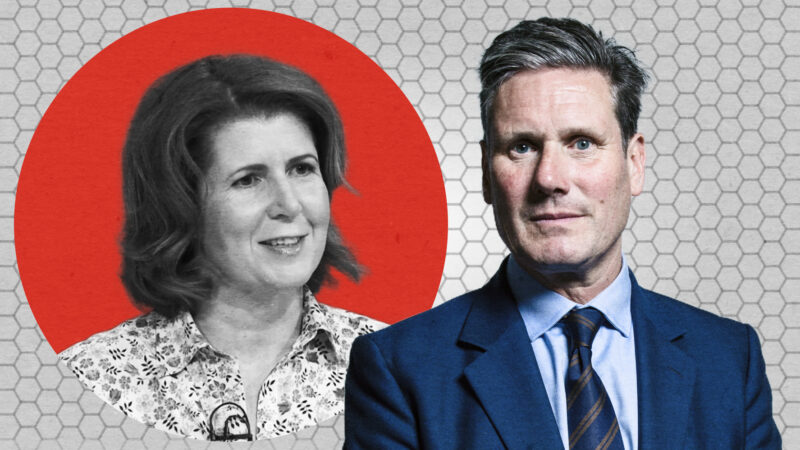
One of Keir Starmer’s closest aides, Jenny Chapman, is being moved from her role as director of politics in the Labour leader’s office to become shadow Brexit minister in the House of Lords. According to an exclusive report by The Times this morning, she will join the shadow cabinet in her new post as the opposite number to Lord Frost, the Brexit minister.
Chapman served as a shadow Brexit minister throughout Starmer’s time as Shadow Brexit Secretary until she lost her Darlington seat in 2019. She was then made parliamentary chair of his leadership campaign. The move from the leader’s office to a prominent role in the Lords has long been in the offing, and was widely expected to take place soon after she was nominated for a peerage in December.
The ex-MP delivered her maiden speech in the upper chamber in March and it is a surprise to many party insiders that she has stayed as director of politics for so long. Her decision-making has been attributed to some of Labour’s troubles in Hartlepool, as she was thought to have pushed for the one-man longlist, and also the Batley and Spen by-election, as she is thought to have encouraged Tracy Brabin to run for West Yorkshire mayor after the Batley MP was removed from the shadow cabinet despite having backed Starmer’s leadership bid.
Chapman, as a former shadow Brexit minister, has the credentials to shadow David Frost. But the move to this particular post has raised some eyebrows within the party. She will be shadowing a minister of state in the Cabinet Office who works under Michael Gove, which means Chapman is expected to work closely with Angela Rayner, who was made Shadow Chancellor of the Duchy of Lancaster and shadow minister for the Cabinet Office – opposite Gove – after her botched sacking. One source speculated that tensions between Chapman and Rayner mean Brexit could be moved out of Rayner’s brief to avoid an uneasy working relationship.
The decision to move Chapman out of the leader’s office comes amid a wider reshuffle. Starmer’s communications director Ben Nunn is also leaving, while it was confirmed at the same time that Paul Ovenden on deputy comms is quitting for family – not political – reasons. Chief of staff Morgan McSweeney is understood to be changing his role, away from day-to-day duties and towards election preparations, closer to the functions of general secretary David Evans (with whom McSweeney has worked before). Pollster Deborah Mattinson will soon start as director of strategy, and Labour MP Conor McGinn has been made deputy national campaign coordinator under Shabana Mahmood.
Along with the recent departure of Carolyn Harris, a personal friend and big admirer of Starmer, as his parliamentary private secretary (i.e. ‘eyes and ears’ among Labour MPs), Starmer has cleared out most of his closest allies from the top team. This has made some external stakeholders nervous: losing continuity means new staffers may have to build important relationships from scratch. But Labour MPs and, to a lesser extent, aides, have been clear for some time that changes were needed.
MPs have complained about a lack of communication, made worse by remote working during Covid. “If I wanted to know what Keir might think about something I wanted to work on there is literally no-one to sound out. Just people doing their own thing in his name,” one staffer told LabourList. It is understood that even those working in the leader’s office have referred to “Keir’s team” to mean not the whole of LOTO but only his small inner circle.
Starmer has listened to colleagues, at the cost of losing loyal staffers. Now his management skills will be put to the test: the Labour leader will need to ensure his revamped office can form better relations with the parliamentary party and employees in other teams, while also looking outwards to improve his personal approval ratings and the party’s electoral performance.




More from LabourList
Government announce SEND reform in schools white paper
SPONSORED: ‘Industrial hemp and the challenge of turning Labour’s priorities into practice’
‘A day is a long time in politics, so we need ‘action this day’’